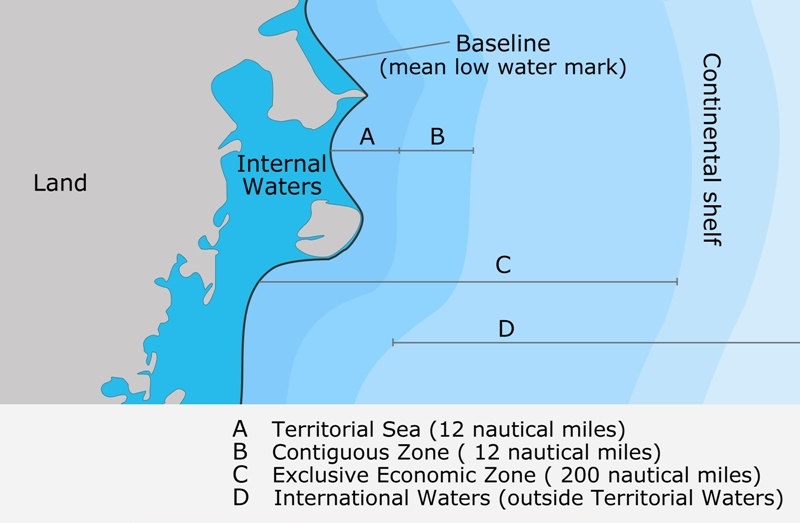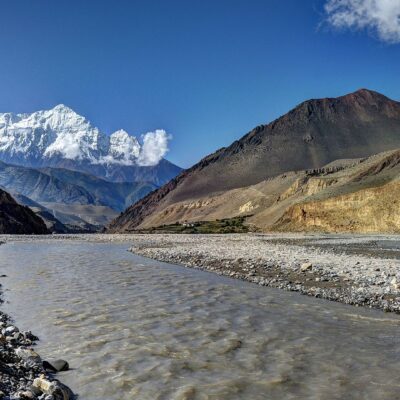The Supreme Court recently reserved its order on an interim plea by fishermen using purse seine nets to be allowed to operate in waters beyond the 12-nautical-mile limit off Tamil Nadu’s coast.
What is Territorial Waters?
602 × 297

What is it ? Territorial waters, under the United Nations Convention on the Law of the Sea (UNCLOS), is that area of the sea immediately adjacent to the shores of a country and subject to the territorial jurisdiction of that country.
Extend: The territorial sea extends to a limit of 12 nautical miles from the baseline of a country’s coast.
Importance of Territorial waters
Within its territorial waters,a country exercises full sovereignty over the air space above the sea and over the seabed and subsoil.
The government can legislate on matters concerning the safety of navigation, the preservation of the environment, and the prevention, reduction, and control of pollution within its territorial waters.
Resource use within the territorial sea is strictly reserved to the coastal nation.
All countries have the right of innocent passage (passage that is not prejudicial to the security of the coastal country) through the territorial sea of another country, although there is no right of innocent air space passage.
The right of innocent passage does not apply to submerged submarines nor does it include a right to fish.
United Nations Convention on the Law of the Sea (UNCLOS)
The UNCLOS, also known as Law of the sea was adopted in 1982.
It lays down a comprehensive regime of law and order in the world’s oceans and seas establishing rules governing all uses of the oceans and their resources.
There are many provisions under UNCLOS which regulate and control the functioning and claims of nations on the world’s oceans and seas.
The convention was ratified by 168 parties, which included 167 states and the European Union.
India is a state party to the UNCLOS.
UNCLOS, as the currently prevailing law of the sea, is ultimately binding.
What is an Exclusive Economic Zone?
Exclusive economic zone (EEZ), as defined under the UNCLOS, is an area of the ocean extending up to 200 nautical miles (370 km) immediately offshore from a country’s land coast in which that country retains exclusive rights to the exploration and exploitation of natural resources.






